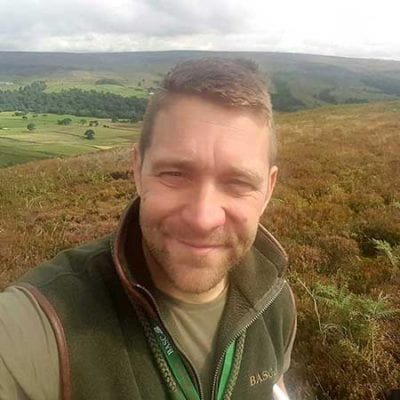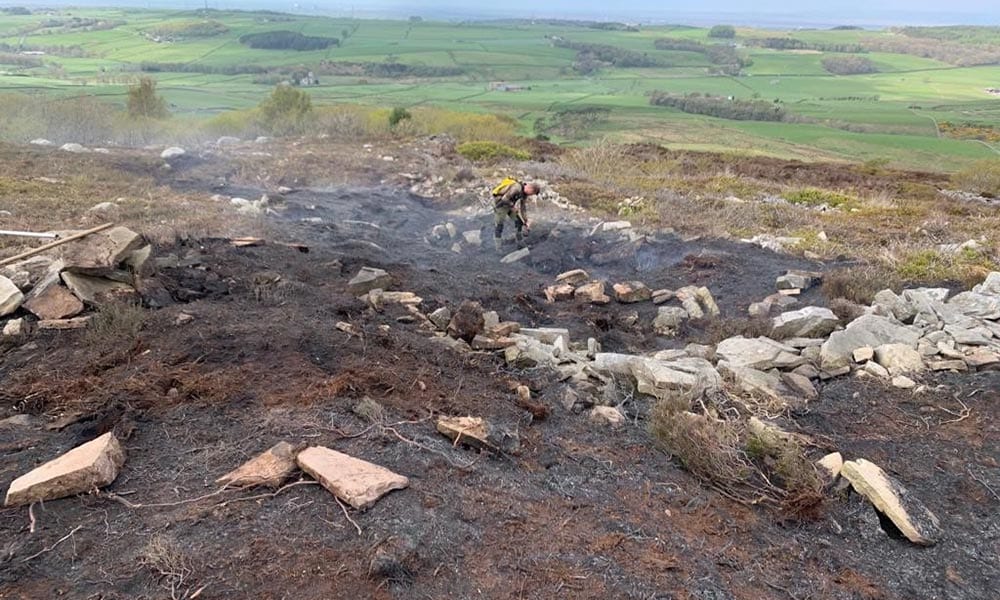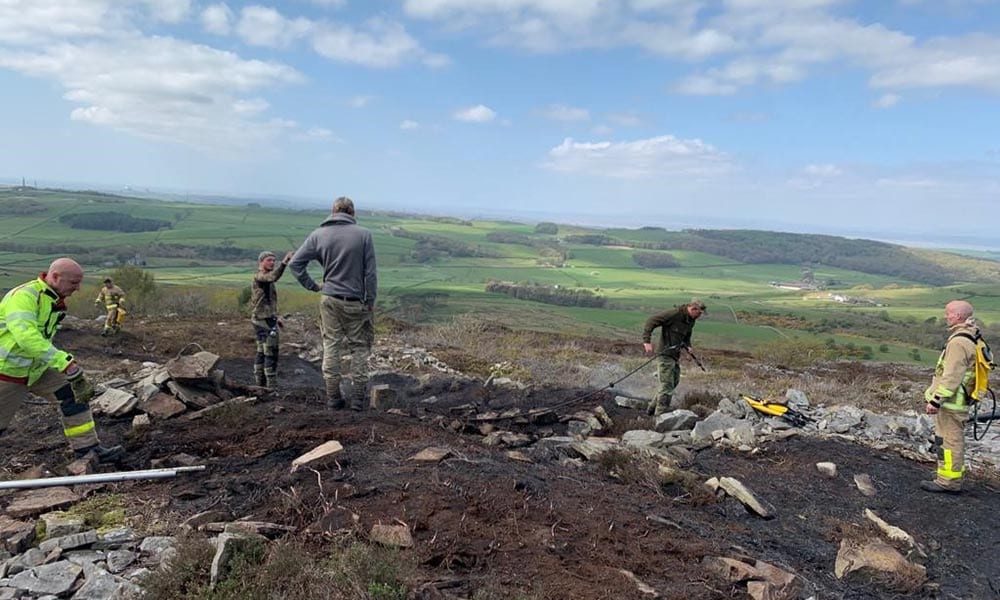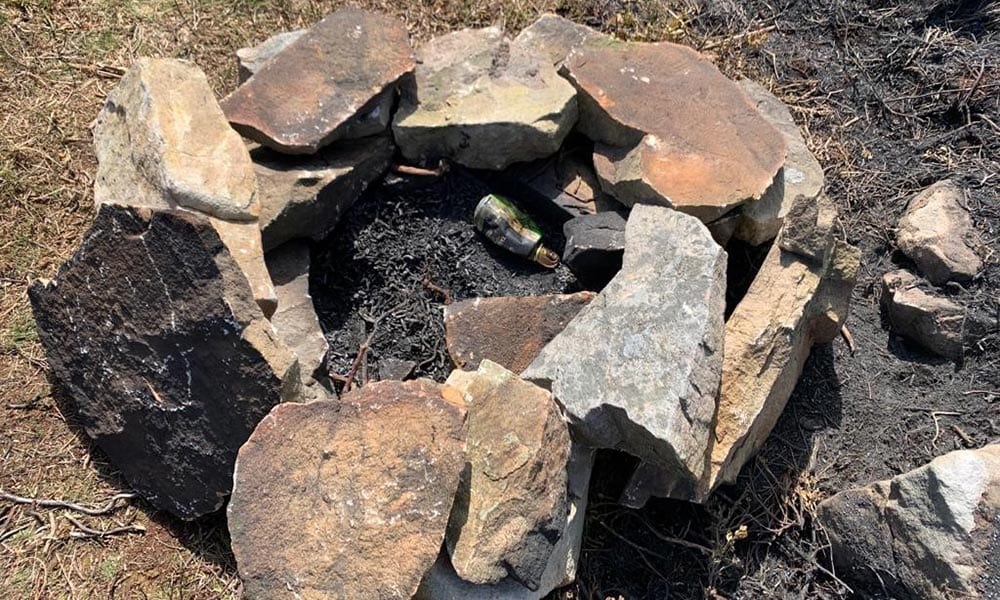Wildfire risk as temperatures near April record

Gareth Dockerty
After a very wet winter, spring began with a welcomed dry spell and some much-needed sunshine. This weather helped most of us isolating at home or trying to entertain children during the coronavirus restrictions. However, the recent wildfires in Scotland, Northumberland, West Yorkshire and the Forest of Bowland in Lancashire (below) is a reminder of the risks during dry spells.

Set for sunshine
We could see April temperatures hit a record high as some parts of the UK have experienced the driest weather for over 40 years.
Most wildfires are started by people, either by accident or arson. So in theory with the current restrictions due to Coronavirus, the risk to the countryside could be reduced. However, the recent weather conditions and spate of wildfires over the last couple of weeks, shows there is still a significant risk. Therefore, we need to ensure we are continuing to safeguard the countryside, even when we venture out for our daily exercise.
Enjoy time outside, respect the countryside
As social distancing continues, everyone wants to make the most of time out of the house. Spending time in the countryside and moorlands, which are alive with birdsong, ground nesting birds and all the joys of spring, benefits mental wellbeing and is vital to keep our moral up at this difficult time. Not only are the habitats vulnerable to fire, our emergency services are currently extremely stretched at this time.
Simon Thorpe, chair of the England and Wales Wildfire Forum, said: “We all need to play our part and make sure we do not add to the strain on our emergency services.
“There are fewer people on hand to spot fires and tackle them in the countryside during the current Coronavirus restrictions. Most wildfires are caused by people and your bonfire or BBQ could start one. Please be responsible: do not start fires.”

Grouse moor gamekeepers
Sometimes overlooked in media coverage, grouse moor gamekeepers continue to play a vital role in wildfire prevention and management. They are vital to the land management; re-wetting, grazing, mowing and undertaking controlled cool burns along with well-maintained firebreaks to reduce the risks of wildfire.
When wildfires breakout, gamekeepers become a vital part of the coordinated response. They provide expertise and specialist equipment to tackle a blaze quickly and without this local response, the results can be devastating.
Gamekeeper Scott Patterson said: “Watching out for wildfires is part of our job and sometimes they can be started accidentally. However, they are often started recklessly and the damage that occurs, particularly in late spring when most birds are nesting, can be catastrophic and have a knock-on effect for years after.
“A recent incident in Bowland was started by a campfire which had been lit on tinder dry ground (pictured below). Thankfully, the keepers on the estate rapidly mobilised all their staff and equipment, contacted the fire brigade and together managed to extinguish the fire before a major incident occurred.”

Wildfire research
The stark reality of wildfire destruction is highlighted in a recent study by Leeds University. It indicates the devasting 2018 wildfire on Saddleworth Moor.
This incident damaged over 200 hectares of moorland, costing £2 billion and potentially created an increase in human mortality due to the inhalation of smoke particles. Not to mention the climate impacts of the underground burning of peat being emitted into the air.
